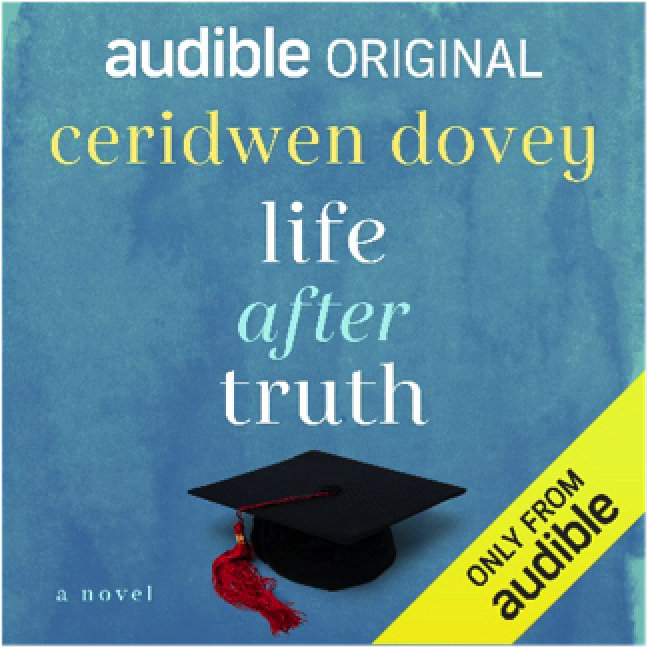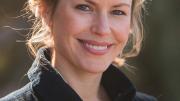Reunions are practically invented for storytellers. “There’s this amazing dramatic structure built into our lives as college graduates who are invited to return to campus every five years,” says the South African-born, Australian writer Ceridwen Dovey ’03. “It becomes this built-in ritual, as time passes, to take stock of who we once were, and who we are now. That’s not always only a pleasant experience, of course.”

Events turn especially unpleasant for the five Harvard classmates in her new novel, Life After Truth. Inspired by emotional experiences from her own fifteenth reunion, the book follows these accomplished friends as they gather to sleep, shower, and reminisce in the dorms of their youth amid revelations about questionable life choices and their searches for happiness. The angst comes to a head when another classmate, the infamous Frederick Reese, turns up dead. If Dovey’s fiction feels fused to facts—the book opens with replicas Red Book class report entries penned by each character—note that Reese is the the son of, and senior adviser to, the new and highly controversial U.S. president.
Jared Kushner is Dovey’s classmate, as is Natalie Portman (the novel's main characters are the loyal college friends of a fictionalized Hollywood alumna, Juliet Hartley). And a small group of 2003 classmates did criticize Kushner—as in “Shame on you, Jared Kushner”—in their fifteenth-anniversary Red Book entries. In the novel, as in reality, Reese is cast as a lightning rod. Dovey mines these facts and human reactions—to fame, power, status, and dawning middle age—in building a central theme: the struggle to find authentic love and fulfillment in a populist, digitized age.
Life After Truth’s exploration of “contemporary manners and modern life,” she acknowledges, is a change from her previous work. The allegorical stories Blood Kin and Only the Animals looked at political authoritarianism; the nonfiction Inner Worlds Outer Spaces (published last year) elucidates the working lives of people who love what they do. Her reliance on fables, she says, largely reflected “existential angst over what right I had to have a voice at all, as someone born as a white South African. For the first two decades of my writing life, that was my obsession: figuring out how to atone for that in my writing, and how to speak the things I had to say from ground that didn't ever feel stable.” This newest novel (released in the United States as an Audible Original, with the print version due out in Australia in November) offered the chance not to “dwell so much on the darker emotions,” she adds. “I think it’s Ian McEwan who said that, as a writer, as he got older, he began to want things to start to go right—whereas many younger writers embrace the trap of nihilism. I feel that, too, and so it was a creative experiment for me, a challenge, to find a voice that was warmer, more accessible, less anguished about big ideas like power-abuse and complicity, and prepared to accept that it is okay to write a novel about the minutiae of everyday lives.”
The novel captures in telling details the melancholy-tinged reflections that can arise as classmates depart the reunion:
The tent had already been dismantled, she’d noticed through the car window, leaving ghostly marks on the lawn in the shape of how things had been. In front of the wrought-iron gate, chairs had been stacked and trestle tables folded and flattened. Empty wine bottles awaited recycling in neat clusters, and flower arrangements sat wilting on the sidewalk, their best hours behind them.
For a moment, Mariam had imagined returning to that campus for their twentieth reunion. Maybe, by then, she and Rowan and their friends and classmates—those among them who were destined to survive the next five years—would no longer care that their youth had well and truly vanished. Conscious of the gentle consolations of early middle age, they would simply be happy to be there, grateful to have been spared.








